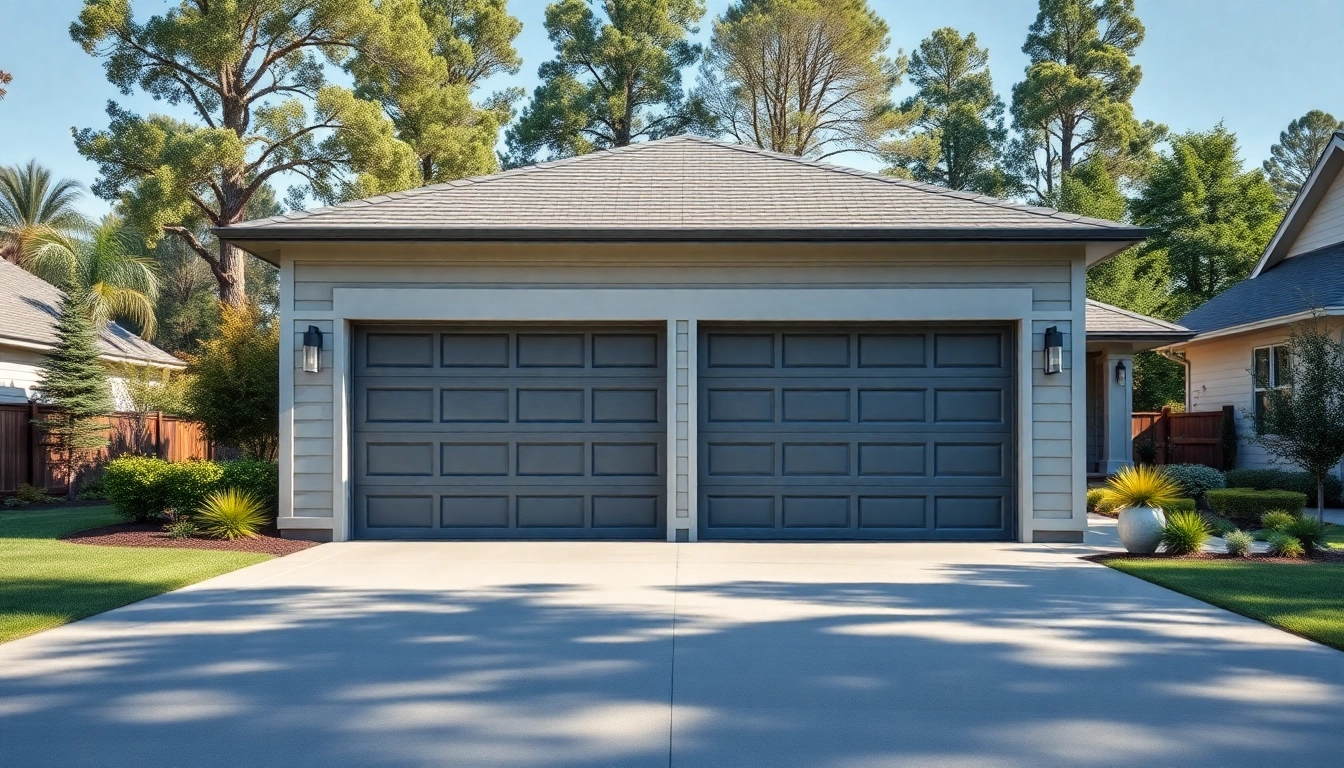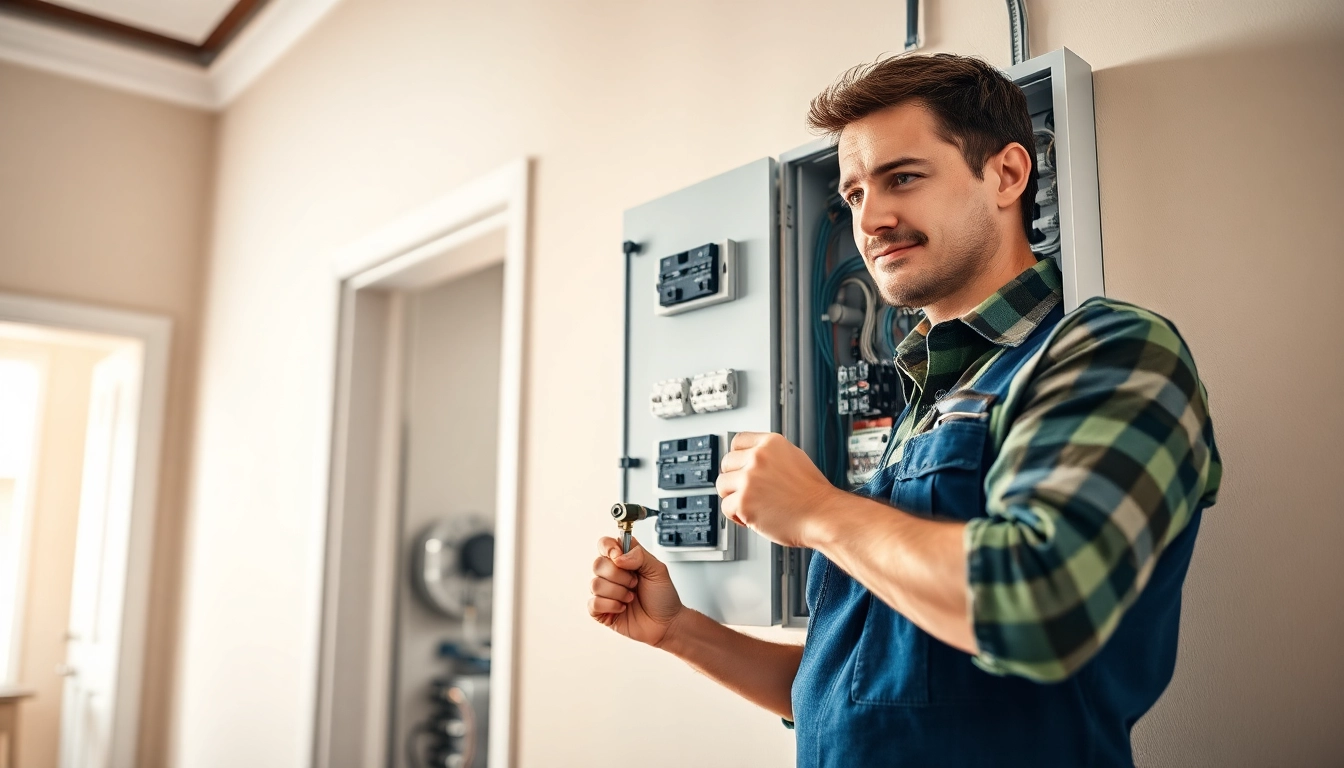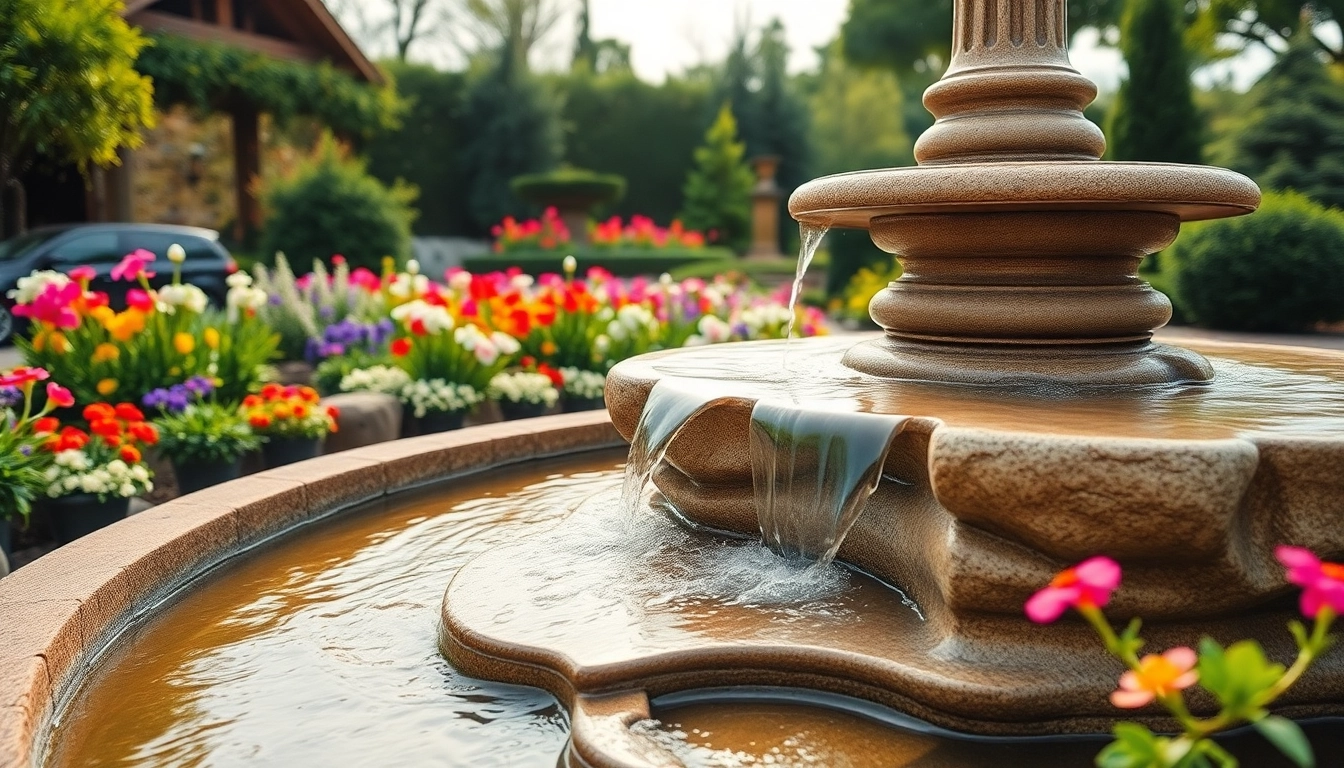Understanding the Importance of Custom Garages
When it comes to enhancing both functionality and aesthetic appeal of residential properties, custom garages stand out as a paramount investment. Beyond merely providing shelter for vehicles, customized garages offer homeowners a unique opportunity to create a space that suits their specific needs and style. In this section, we will delve into the many advantages that custom garages bring to homeowners, selecting key features for optimal design, and examining how they can even increase property value.
Benefits of Custom Garages for Homeowners
Custom garages offer a myriad of benefits that go well beyond the conventional purpose of protecting vehicles. Here are some of the compelling reasons why investing in a custom garage may be an excellent decision for any homeowner:
- Personalization: With custom garages, homeowners have the freedom to choose the design, layout, and features that best meet their specific requirements, ensuring it complements their lifestyle.
- Enhanced Organization: A custom garage allows for tailored storage solutions, making it easier to organize tools, outdoor equipment, and seasonal items, thus maximizing space efficiency.
- Multi-functional Utilization: Many homeowners opt for garages that serve multiple purposes, such as workshops, home gyms, or hobby spaces, increasing the overall usability of their property.
- Improved Home Aesthetics: An aesthetically pleasing garage can enhance the overall look of a property, adding character and charm, which often reflects well on the homeowner’s taste.
- Convenience and Security: Customized designs allow for installations of advanced security systems, providing peace of mind through safe storage of valuable equipment and vehicles.
Key Features to Consider in Custom Garage Design
Designing a custom garage involves careful consideration of various features that enhance both functionality and style. Here are some essential features to keep in mind:
- Size and Layout: The size of the garage should be proportionate to the available space and the number of vehicles it needs to accommodate. Considerations for layout can include the inclusion of extra depth for larger vehicles or workspace.
- Storage Solutions: Custom cabinetry, shelving, and pegboards allow homeowners to declutter their space efficiently. Smart organization ensures that everything has a designated place.
- Natural Lighting: Incorporating windows and skylights not only makes the garage inviting but also enhances visibility while working on projects.
- Electrical Outlets: Sufficient electrical outlets are crucial for powering tools and equipment. Designing with these in mind avoids the need for cumbersome extension cords.
- Heating and Cooling Systems: Climate control can significantly improve the usability of a garage throughout the year, particularly in regions with extreme weather.
How Custom Garages Can Increase Property Value
Investing in a custom garage can deliver a substantial return on investment. Here’s how they can elevate property value:
- Market Appeal: Homes with appealing garages often attract more buyers in a competitive real estate market, providing an edge over properties without such features.
- Enhanced Usable Space: Additional usable space is always an attractive feature for potential buyers, making a property more desirable.
- Cost Recovery: According to the Remodeling Magazine’s Cost vs. Value report, garage renovations can return upwards of 75% to 85% of the investment upon resale, particularly if executed with high-quality materials and design.
Choosing the Right Design for Custom Garages
The design of a custom garage greatly influences its functionality and overall appeal. It’s essential to choose a design that harmonizes with the existing architecture of your home while meeting personal preferences. Below, we explore popular styles, the integration of functionality with aesthetics, and recommendations for color schemes and materials.
Popular Styles for Custom Garages
Several design styles for garages can be tailored to reflect individual tastes and home architecture:
- Modern: Characterized by clean lines, large windows, and minimalistic features, modern garages often employ materials like concrete and metal.
- Traditional: These garages replicate classic designs with pitched roofs, wooden siding, and ornamental details, seamlessly blending with colonial or farmhouse-style homes.
- Industrial: This style showcases raw materials, such as exposed brick and steel, perfect for homeowners who appreciate a rugged aesthetic.
- Victorian: With intricate details, these garages echo the romantic charm of Victorian homes, featuring embellishments like crown moldings and decorative trims.
Integrating Functionality and Aesthetics
Striking a balance between utility and beauty is critical when designing a custom garage. Functional elements such as overhead storage, workbenches, and electric vehicle charging stations can be integrated seamlessly without sacrificing aesthetics. Homeowners should prioritize the use of innovative layouts and materials that enhance both aspects.
Color Schemes and Materials for Your Garage
The selection of colors and materials plays a vital role in the overall aesthetic of your custom garage. Classic and neutral colors tend to offer timeless appeal, while bold shades can make a striking statement. Popular material choices include:
- Brick: Durable and visually appealing, brick lends warmth and character to a garage.
- Vinyl Siding: Offering a variety of color options and low maintenance, vinyl siding is an excellent choice for residential garages.
- Wood: A natural and classic material, wood adds character but requires regular maintenance to preserve its look.
- Metal: Known for its durability, metal can provide a modern, industrial look, especially when combined with other materials.
Planning the Perfect Custom Garage
Effective planning is crucial for the successful execution of a custom garage project. Several factors, such as space requirements, local zoning laws, and working with professionals, must be considered to achieve the desired results.
Understanding Space Requirements and Zoning Laws
Before starting your custom garage project, it’s essential to understand local zoning laws and regulations. These regulations dictate aspects like the size, height, and positioning of the garage in relation to property lines. Evaluating space requirements, including height and layout, can help prevent complications during construction. Consulting with local building authorities ensures compliance, preventing future legal challenges.
Working with Contractors and Designers
Choosing the right contractor or designer can significantly impact the outcome of your custom garage project. Look for professionals who have a portfolio of similar projects and can offer insights based on experience. Communication is key—ensure that your vision aligns with their expertise. Furthermore, consider soliciting multiple quotes to find options that fit your budget and meet your preferences.
Budgeting for Your Custom Garage Project
Budgeting is a critical part of planning your custom garage. Having a clear understanding of materials, labor costs, permits, and potential add-ons will help you create a realistic budget. Here are practical steps to improve budget management:
- Set Priorities: Determine essential elements versus nice-to-have features to make the most efficient use of your budget.
- Expect Contingencies: Include a buffer for unexpected costs, generally estimated at about 10-20% of your total budget.
- Explore Financing Options: If necessary, investigate financing options that allow you to manage payments comfortably while completing your garage project.
Essential Features for Custom Garages
A well-designed custom garage integrates smart features that enhance functionality and convenience. Here are some essential features that every custom garage should consider:
Smart Storage Solutions for Custom Garages
Utilizing vertical space with shelving units, racks, and cabinets can transform a cluttered garage into an organized haven. Storage solutions should be tailored to the owner’s needs—whether it’s for outdoor equipment, sports gear, or hefty tools. Custom cabinetry can deliver a sleek look while maximizing utility.
Lighting and Electrical Considerations
Effective lighting is crucial in a garage, especially for those using the space for hobbies or projects. Natural light from windows or skylights can encourage productivity, but practical lighting fixtures are equally important for nighttime tasks. Ensure ample electrical outlets are strategically placed to accommodate tools and appliances while ensuring safety compliance.
Climate Control and Insulation Options
Incorporating proper insulation can significantly enhance the comfort and efficiency of your garage. This is especially true if the garage serves multiple purposes beyond vehicle storage. Provide adequate HVAC options that maintain the desired temperature year-round. Various insulation materials, such as spray foam or fiberglass, can boost energy efficiency while minimizing heat loss.
Maintenance Tips for Your Custom Garage
To ensure that your investment in a custom garage lasts for years, regular maintenance is vital. Here are essential upkeep tips that will prolong the life and aesthetic appeal of your garage:
Keeping Your Garage Doors in Top Shape
Your garage door acts as the main entry point and should be maintained through regular inspection and care. Consider lubricating hinges and tracks, testing the automatic door opener, and checking for any signs of wear in seals and insulation. This ensures smooth operation and can prevent costly repairs down the line.
Cleaning and Care for Custom Garage Surfaces
Maintaining the surfaces in your custom garage is significant for cleanliness and aesthetics. Regular sweeping and mopping will ensure that floor coatings (like epoxy) remain in good condition. For walls, a damp cloth can remove dust accumulation, and windows should be cleaned periodically to invite natural light.
Seasonal Maintenance Checks for Longevity
Seasonal checks can catch potential issues before they escalate. In spring and fall, inspect the insulation for wear, check for leaks, verify the condition of storage structures, and assess any mechanical systems such as heaters or fans. Regular attention to these details can contribute to the longevity of your custom garage.




